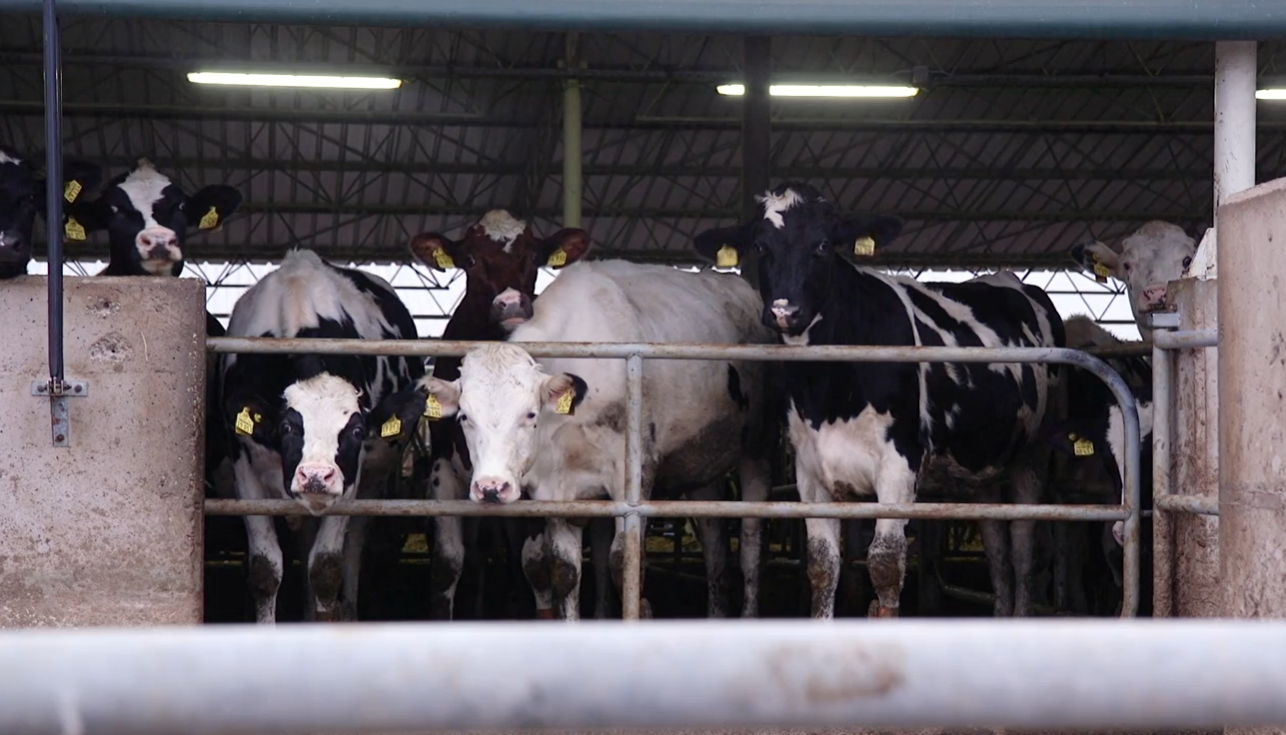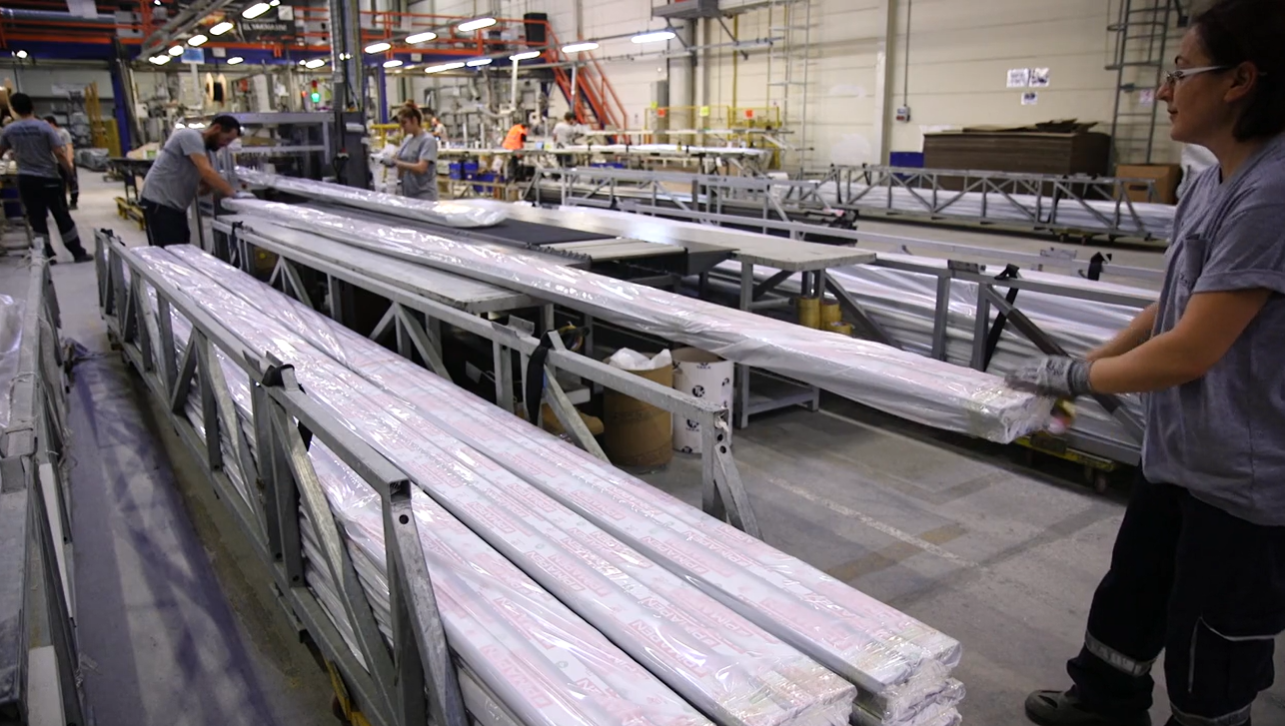We welcome your feedback
Your input matters. Help us improve the CIF website by completing a brief survey. It will only take two minutes and will support our ongoing efforts to serve you better.
The Sütaş Dairy Group prides itself on its integrated value chain. Each of its four facilities in Türkiye includes a cattle breeding farm, a feed plant, a dairy production unit that processes milk from thousands of local farms – and an energy and fertilizer production plant.
So along with milk, cheese, yogurt, and other dairy products sold in Türkiye and dozens of other countries, in 2022, Sütaş produced 89,665 MWh of electricity, enough to meet about 80% of the production facilities’ power needs (or about 32,500 homes).

All that energy came from recycling waste; more than 729,000 metric tons of manure and vegetable matter from the plants, nearby farms and other sources. The on-site energy plants turn the waste into biogas used to produce electricity as well as steam and heat for industrial processes.
Sütaş is one of nine circular economy pioneers supported by the Near Zero Waste (NØW) program, launched in 2015 by the European Bank for Reconstruction and Development (EBRD) with about US$20 million in concessional finance from the Climate Investment Funds' (CIF) Clean Technology Fund (CTF).
Watch how Sütaş turns waste into biogass (video courtesy of EBRD):
The NØW program was designed to help Türkiye reduce the volume of waste going into landfills every year, to align its practices with European Union policies and reduce greenhouse gas emissions from the sector. An EBRD market assessment had also found that Turkish industrial supply chains in particular were missing key opportunities to reduce waste, recycle, and convert waste to energy.
The core of the NØW program was thus a financing package combining the CTF funds with about US$200 million from EBRD to provide loans to companies willing to undertake ambitious waste reduction and reuse projects. The CTF funds, provided with a longer tenor and lower interest rate than conventional loans, were meant to help overcome the challenges of being a first mover.
Along with the financing, companies received extensive technical assistance, funded by the EU. In addition, the program included policy engagement to strengthen legislative and regulatory frameworks and implementation, and knowledge-sharing to promote best practices.
“We tried to create case studies in different sectors that would be the first or early adopters of certain technologies and processes,” said Ela Yilmaz, principal for climate strategy and delivery at EBRD, who led the program. “We tried to show sectors that these technologies really work to reduce resource use and minimize waste, so they could more confidently invest in these technologies.”
Learning by doing
Along with Sütaş, the largest dairy company in Türkiye, the program included major manufacturers of glass, flexible packaging, and metal containers; a company that makes metalized cardboard packaging for a wide range of uses; a PVC window manufacturer; a major processer and exporter of organic fruit and nut products; and a major shipbuilder.
Each adopted an innovation tailored to its sector’s needs. For example, Sarten Ambalaj, the metal container maker, developed thinner cans that use less material. Işık Organic found a way to upcycle underused raw materials into a frozen puree product, and also began producing freeze-dried fruits, which have a longer shelf life than traditional dried fruits and also weigh less, requiring less packaging.

The very first project to get going was a new state-of-the-art PVC profile manufacturing plant for Ege Profil, including solar panels, a tri-generation plant, and a water recovery system, to enable the company to expand its PVC recycling activities. The effort stood out because 70 percent of construction waste in Türkiye ended up in landfills, but there was no mandate to use recycled materials.
Production manager, Erdem Cenk Karabulut, explained the company’s motivation: “There are two main reasons why to use recycled materials in production. The first is we don’t want to dispose to the landfill. The second one is saving money, because we are using recycled material as raw material.” By then, Ege Profil was returning about 10,000 tons of PVC to the economy each year. The volume has significantly increased since then, Yilmaz said.
Go inside Ege Profil's manufacturing plant (video courtesy of EBRD):
Korozo, a manufacturer of packaging and film products, is yet another NØW success story, reducing the release of pollutants through a novel solvent recovery technology and inspiring several other companies to invest in solvent recovery units.
Yet soon it became clear that significant barriers to the large-scale uptake of circular solutions. In 2016 the program launched the Turkish Materials Marketplace (TMM), where businesses can exchange underused or recovered materials and also learn together. By November 2019, 100 companies were on the platform. EBRD also supported the national government in developing end-of-waste (EoW) criteria, to help reduce regulatory barriers to the circular economy.
The NØW program has influenced some sectors more than others, Yilmaz said, and it showed that the transition to a circular economy requires significant support, from market studies to changes in national policies and practices. Still, several participants have kept raising their ambition, and others have emulated their efforts.
The work also continues. The collaboration that created the TMM has expanded to support the Turkey Circular Economy Platform, a joint effort by EBRD and the Business Council for Sustainable Development (BCSD) Turkey. Moreover, building on the lessons from NØW, EBRD in 2022 created the Circular Economy Regional Initiative, which covers the western Balkans and Türkiye.
Your input matters. Help us improve the CIF website by completing a brief survey. It will only take two minutes and will support our ongoing efforts to serve you better.